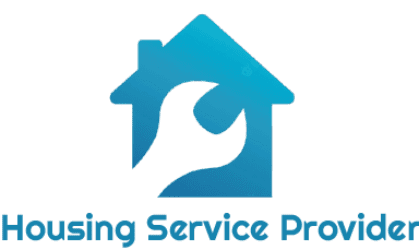Leasing a car can affect buying a house because it affects debt-to-income ratio and credit score, which are important factors in mortgage approval. When applying for a mortgage, lenders consider the individual’s monthly debt obligations, including car lease payments, which can increase the debt-to-income ratio and potentially impact the amount one can borrow for a home loan.
Additionally, leasing a car can impact credit score, as it increases the overall debt and adds a new credit account to the credit report. This can affect the interest rate and terms of the mortgage. Therefore, it is essential to carefully consider the financial implications of leasing a car before buying a house.

The Relationship Between Debt-To-Income Ratio And Mortgage Approval
Understanding The Correlation Between Leasing A Car And Buying A House
When it comes to buying a house, many factors come into play, including your financial standing and creditworthiness. One such factor that can impact your ability to secure a mortgage is your debt-to-income ratio. This ratio calculates the percentage of your monthly income that goes towards paying off debts, and it plays a crucial role in determining your mortgage approval.
Surprisingly, even leasing a car can affect your debt-to-income ratio and, consequently, your ability to purchase a home.
Exploring The Importance Of Debt-To-Income Ratio In Mortgage Approval
Understanding the significance of the debt-to-income ratio is essential in comprehending its impact on your ability to secure a mortgage. Here are the key points to keep in mind:
- Debt-to-income ratio: This ratio is a measure of your financial capacity to handle additional debt responsibly. Lenders use this metric to evaluate your ability to make monthly mortgage payments. It is calculated by dividing your total monthly debt payments by your gross monthly income.
- Maximum acceptable ratio: Different mortgage lenders have different requirements when it comes to the debt-to-income ratio. Generally, most lenders prefer a ratio of 36% or lower, although some may accept higher ratios under certain circumstances.
- Impact on mortgage approval: If your debt-to-income ratio exceeds the lender’s acceptable range, it can significantly affect your chances of getting approved for a mortgage. Lenders typically look for borrowers with a low debt-to-income ratio to ensure they can comfortably meet their mortgage obligations.
How Leasing A Car Affects Your Overall Debt-To-Income Ratio
Leasing a car can impact your overall debt-to-income ratio and potentially hinder your ability to qualify for a mortgage. Here’s what you need to know:
- Monthly lease payments: When you lease a car, you commit to monthly payments for the duration of the lease term. These lease payments add to your monthly debt obligations, which in turn affects your debt-to-income ratio.
- Increased debt load: Leasing a car increases your overall debt load, as lenders consider lease payments as a form of debt. Therefore, when qualifying you for a mortgage, the lender takes into account your lease payments along with any other outstanding debts you may have.
- Higher debt-to-income ratio: Including lease payments in your debt-to-income ratio calculation can push your ratio above the lender’s acceptable threshold. This may negatively impact your chances of being approved for a mortgage or limit the loan amount you can secure.
To sum it up, leasing a car can indeed affect your ability to buy a house by increasing your debt-to-income ratio. If you’re considering buying a home in the near future, it’s crucial to carefully evaluate your financial situation, including your existing debts and lease payments, to ensure you meet the lender’s requirements for mortgage approval.
Remember, maintaining a low debt-to-income ratio is key to increasing your chances of securing a mortgage and realizing your dream of homeownership.
The Role Of Credit Score In Mortgage Applications
Leasing a car can be a practical option for many individuals who prefer not to commit to long-term ownership. However, does leasing a car affect your ability to buy a house? One crucial factor to consider is your credit score and how it impacts your mortgage application.
In this section, we will analyze the impact of leasing a car on your credit score, discuss how credit score affects mortgage applications, and provide tips for maintaining a good credit score while leasing a car.
Analyzing The Impact Of Leasing A Car On Credit Score
Leasing a car can have both positive and negative effects on your credit score. Understanding these effects is essential before making a decision. Here are the key points to consider:
- On-time payments: Consistently making your lease payments on time can have a positive impact on your credit score, as it demonstrates responsible financial behavior.
- Credit utilization: Leasing a car may result in a higher credit utilization ratio, which is the amount of credit you use compared to your available credit. If the leased car adds a significant amount to your monthly obligations, it could potentially increase your credit utilization and negatively impact your score.
- Credit inquiries: When you lease a car, the leasing company may perform a credit inquiry, which can temporarily lower your credit score. Multiple inquiries within a short period can have a cumulative effect.
How Credit Score Affects Mortgage Applications
Your credit score plays a crucial role in mortgage applications. Lenders use your credit score as an indicator of your creditworthiness and ability to repay the loan. Here’s what you need to know:
- Loan eligibility: A higher credit score increases your chances of being eligible for a mortgage loan. Lenders typically offer better terms and lower interest rates to borrowers with higher credit scores.
- Interest rates: Your credit score directly influences the interest rate you’ll receive on your mortgage loan. A higher score can result in a lower interest rate, ultimately saving you money over the life of the loan.
- Down payment requirements: Certain mortgage programs may require a higher down payment if your credit score is lower. A stronger credit score can help you qualify for lower down payment options.
- Approval process: Lenders carefully assess your credit history during the mortgage application process. A good credit score demonstrates financial responsibility and increases the chances of your mortgage application getting approved.
Tips For Maintaining A Good Credit Score While Leasing A Car
While leasing a car, you can take specific actions to maintain a good credit score. Here are some helpful tips:
- Pay on time: Ensure timely payment of your monthly lease installment to avoid any negative impact on your credit score.
- Monitor credit utilization: Keep an eye on your overall credit utilization ratio. If the leased car increases your obligations significantly, try to keep your credit utilization low by managing other credit accounts responsibly.
- Limit credit inquiries: Be cautious when applying for additional credit or loans while leasing a car. Multiple credit inquiries can temporarily lower your credit score.
- Regularly check your credit report: Monitor your credit report for any errors or inaccuracies that may impact your score negatively. Report any discrepancies to the credit reporting agencies and have them corrected promptly.
- Maintain a diverse credit mix: Having a healthy mix of revolving credit (credit cards) and installment loans (car lease) can positively impact your credit score.
By understanding the impact of leasing a car on your credit score, recognizing how credit score affects mortgage applications, and implementing these tips, you can maintain a good credit score while enjoying the benefits of leasing a car. Take proactive steps to establish and preserve a solid credit history, contributing to a successful mortgage application process.
Financial Considerations: Lease Payments Vs. Mortgage Affordability
Leasing a car is a popular option for many people, offering flexibility and lower monthly payments compared to buying a car outright. However, if you’re planning to buy a house in the near future, you might be wondering how leasing a car could affect your ability to afford a mortgage.
In this section, we’ll explore the financial considerations of lease payments versus mortgage affordability and evaluate the pros and cons of leasing a car when planning to buy a house. We’ll also discuss alternative options for balancing lease payments and mortgage affordability.
So let’s dive in!
Calculating How Lease Payments Affect Your Ability To Afford A Mortgage
When it comes to leasing a car and buying a house, it’s crucial to understand how lease payments can impact your ability to afford a mortgage. Here are some key points to consider:
- Lease payments are included in your debt-to-income (dti) ratio, which lenders use to determine your mortgage affordability. Dti ratio compares your monthly debts, including lease payments, to your monthly income.
- Generally, mortgage lenders prefer to see a lower dti ratio to ensure you have enough income to cover your housing expenses.
- Lease payments can decrease the amount you can borrow for a mortgage, as it adds to your existing monthly debts.
- Lenders typically consider lease payments as long-term debts since leases usually last for several years.
- Before applying for a mortgage, it’s essential to calculate your dti ratio with and without lease payments to determine how it affects your affordability.
Evaluating The Pros And Cons Of Leasing A Car When Planning To Buy A House
Leasing a car has its advantages and disadvantages, which you should carefully weigh when considering buying a house. Here are some points to keep in mind:
Pros of leasing a car:
- Lower monthly payments compared to buying a car.
- Ability to drive a newer car with the latest features without committing to a long-term ownership.
- Lower maintenance and repair costs, as leased cars are typically under warranty.
- No worries about the car’s depreciation value since you return it at the end of the lease term.
Cons of leasing a car:
- Costlier in the long run compared to buying a car outright.
- No equity buildup, as you don’t own the vehicle.
- Mileage limitations and potential penalties for exceeding them.
- Potential fees at the end of the lease term for excessive wear and tear.
Alternative Options For Balancing Lease Payments And Mortgage Affordability
If you’re concerned about balancing lease payments with mortgage affordability, here are a few alternative options to consider:
- Buy a used car instead of leasing: Opting for a used car can significantly reduce your monthly payments while still providing reliable transportation.
- Save for a larger down payment: By saving a larger down payment for your home, you can lower your monthly mortgage payments, offsetting the impact of lease payments on your dti ratio.
- Pay off the existing lease: If you have the means, consider paying off your existing lease before applying for a mortgage. This can eliminate lease payments from your dti ratio and increase your borrowing capacity.
- Delay buying a house: If you’re set on leasing a car now and buying a house in the future, you may want to delay the homebuying process to ensure your finances are better aligned.
Remember, everyone’s financial situation is unique, so it’s essential to evaluate your personal circumstances and consult with financial advisors or loan officers to make informed decisions.
Leasing a car can indeed affect your ability to afford a mortgage, but with careful consideration of lease payments and other financial factors, you can navigate these challenges and find the right balance between leasing a car and buying a house.
Building A Strong Financial Profile
When it comes to leasing a car and buying a house, your financial standing plays a crucial role. Lenders often consider various factors to determine your eligibility for a mortgage, and having a strong financial profile can make a significant difference.
Here are some practical strategies for improving your financial standing and smart ways to manage your lease payments while maintaining a good credit score:
Practical Strategies For Improving Your Financial Standing
- Create a budget: Start by assessing your income and expenses to get a clear understanding of your financial situation. Set realistic financial goals and allocate your money wisely.
- Pay off debt: Prioritize paying off any outstanding debts as much as possible. Reducing your debt-to-income ratio can enhance your financial profile and increase your chances of securing a mortgage.
- Save for a down payment: Saving up for a sizable down payment not only reduces the overall loan amount but also demonstrates your financial discipline and stability to lenders.
- Increase your credit score: Maintaining a good credit score is vital when it comes to buying a house. Pay your bills on time, keep credit card balances low, and avoid opening new lines of credit before applying for a mortgage.
- Monitor your credit report: Regularly check your credit report for any errors or discrepancies. Addressing these issues promptly can help maintain an accurate representation of your creditworthiness.
Smart Ways To Manage Your Lease Payments And Maintain Your Credit Score
- Make timely payments: Pay your lease installments on time each month to avoid any negative impact on your credit score. Late payments can lead to penalties and lower your creditworthiness.
- Budget for lease payments: Incorporate lease payments into your monthly budget to ensure you are prepared. This way, you can avoid any financial strain or missed payments.
- Negotiate lease terms: When leasing a car, negotiate favorable terms that align with your financial goals. Lower monthly payments can reduce the overall burden on your finances.
- Consider your lease length: Opting for a shorter lease term can help you pay off the vehicle sooner, which can positively impact your financial standing.
- Plan for lease-end options: Prepare for the end of your lease by understanding your options. Whether you choose to lease another vehicle, purchase the leased car, or return it, having a plan in place can help you make informed decisions.
By implementing these strategies, you can build a strong financial profile while successfully managing your lease payments. Remember that responsible financial management and a good credit score are essential when it comes to buying a house. Take control of your finances today and pave the way for your future homeownership goals.
Lease Buyouts And Early Termination
Leasing a car can have various implications on your financial situation, including how it may affect your ability to buy a house. One aspect to consider is the lease buyout option offered by many leasing companies. Another factor to take into account is the potential consequences and benefits of terminating your lease contract early.
Understanding these aspects can help you make an informed decision when it comes to buying a house. Let’s delve deeper into these topics.
Exploring The Possibility Of Buying Out Your Lease
- Lease buyout refers to the option of purchasing your leased vehicle before the end of the lease term. Here are some key points to consider:
- Lease buyout can be a viable choice if you’re happy with the current car and want to keep it for the long term.
- The buyout price is typically determined by the residual value of the vehicle, which is the estimated value at the end of the lease.
- It’s important to compare the buyout price with the market value of the car to ensure you’re getting a fair deal.
- Buying out your lease can be advantageous if the market value of the car is higher than the buyout price, as you may have equity in the vehicle.
Understanding The Consequences And Benefits Of Early Lease Termination
- If you’re thinking of buying a house, terminating your lease contract early can have both positive and negative implications. Consider the following points:
- Early lease termination often comes with penalties, such as fees or the requirement to pay the remaining lease payments.
- Terminating your lease early can free up your monthly budget and improve your debt-to-income ratio, which is important when applying for a mortgage.
- However, ending the lease prematurely can also negatively impact your credit score, making it harder to secure a favorable mortgage rate.
- It’s essential to carefully weigh the financial implications of early lease termination against your housing goals.
How Lease Buyouts Can Positively Impact Your Ability To Buy A House
- Here are some ways that lease buyouts can positively affect your ability to buy a house:
- Building equity: If you purchase your leased car through a buyout, you may build equity in the vehicle, which can contribute to your overall financial stability when applying for a mortgage.
- Stability in transportation costs: Owning a car through a buyout ensures you have stable transportation costs, potentially allowing you to allocate more funds towards your mortgage payments.
- Improved creditworthiness: Consistently making buyout payments on time and managing the financial responsibility can positively impact your creditworthiness, increasing your chances of securing a favorable mortgage.
- Flexibility in future financial decisions: Having control over your car ownership can provide flexibility and financial control, allowing you to make prioritized decisions such as saving for a down payment or managing other expenses related to buying a house.
Considering the possibility of buying out your lease and understanding the consequences and benefits of an early termination can provide valuable insights into managing your finances and making informed decisions when it comes to buying a house. Each situation is unique, so it’s essential to evaluate your specific circumstances and consult with a financial advisor if needed.
Planning Ahead: Timing Your Lease And Mortgage Applications
Timing Your Lease And Mortgage Applications Strategically
When it comes to planning ahead for leasing a car while also buying a house, timing is everything. **here are some key points to consider when it comes to timing your lease and mortgage applications:**
- Evaluate your financial situation: Before making any decisions, take a deep dive into your finances. Assess your income, savings, and credit score to understand what you can afford and how it will impact your mortgage application.
- Consider lease terms and end dates: Leases typically last for a specific period, often two to three years. If your lease is about to end, it’s important to think ahead and align it with your home-buying plans.
- Avoid lease extensions: Extending your current lease could complicate the timing of your home purchase. It’s best to avoid extensions and plan your lease end date strategically to ensure a smooth transition.
- Start the lease early: If you’re considering leasing a car and buying a house simultaneously, it might be wise to start the lease early. This will allow you to establish a payment history and build credit before your mortgage application.
- Stagger application timelines: Applying for a car lease and a mortgage simultaneously might create confusion and affect your credit. It’s important to stagger the application timelines to avoid any negative impact on your credit score.
- Pre-approval for a mortgage: Before starting the process of leasing a car, it’s a good idea to get pre-approved for a mortgage first. This will help you understand your home-buying budget and prevent any surprises down the road.
- Monitor your credit score: As you navigate both the lease and mortgage application processes, keep an eye on your credit score. Avoid taking on additional debt or making large purchases that could negatively impact your creditworthiness.
- Communication with lenders: Open communication with both your car lease lender and mortgage lender is crucial. Make sure they are aware of your plans and discuss any potential implications or concerns.
- Plan for the unexpected: Despite careful planning, unexpected delays or issues can arise during the lease and home-buying processes. Be prepared for possible contingencies and have backup plans in place.
- Consult with professionals: If you’re unsure about the impact of leasing a car on your home-buying plans, don’t hesitate to seek advice from professionals such as financial advisors or mortgage brokers. They can provide valuable insights based on your specific circumstances.
Remember, planning and timing are key when it comes to ensuring leasing a car doesn’t negatively affect your house-buying plans. By considering these factors and seeking professional guidance, you can navigate both processes successfully and achieve your goals.
Frequently Asked Questions Of Will Leasing A Car Affect Buying A House
Will Leasing A Car Affect My Chances Of Buying A House?
Leasing a car may affect your chances of buying a house as it can impact your debt-to-income ratio. Lenders consider your monthly lease payments as a liability, reducing the amount you can borrow for a mortgage. It’s important to consider this when planning to buy a house.
Can I Lease A Car While Trying To Buy A House?
Yes, you can lease a car while trying to buy a house. However, keep in mind that your monthly lease payments will be factored into your debt-to-income ratio when applying for a mortgage. Leasing a car may affect the amount you can borrow, so it’s crucial to consider this before making any financial commitments.
How Does Leasing A Car Affect My Credit Score When Buying A House?
Leasing a car can affect your credit score when buying a house. It can impact your credit utilization ratio, which is a factor in determining your credit score. Additionally, if you have missed lease payments or terminated a lease early, it can negatively impact your credit history, potentially affecting your ability to secure a mortgage.
Should I Buy A Car Before Or After Buying A House?
Whether to buy a car before or after buying a house depends on your financial situation and priorities. Buying a car before buying a house will increase your debt-to-income ratio, potentially affecting your mortgage approval. On the other hand, if you have already secured a mortgage, buying a car afterwards may be more manageable.
Consider your circumstances before making a decision.
Can I Qualify For A Mortgage If I Have A Car Lease?
Yes, you can still qualify for a mortgage if you have a car lease. However, your car lease will be considered a liability and will impact your debt-to-income ratio. Lenders will assess your ability to repay the mortgage based on your total liabilities, including the monthly lease payments.
Make sure to factor in this impact when determining your affordability.
Conclusion
Leasing a car can indeed affect your ability to buy a house. Lenders take into account your total debt-to-income ratio when determining your eligibility for a mortgage. Leasing a car adds to your monthly debt obligations and can potentially impact the amount of mortgage you qualify for.
Additionally, lease agreements typically have a set term, which means you are committed to making those monthly payments for the duration of the lease. This long-term commitment may affect your ability to save for a down payment on a house.
Furthermore, leasing a car could also impact your credit score. Missed or late lease payments can harm your creditworthiness, making it more difficult to obtain a mortgage with favorable terms. Therefore, it is essential to carefully consider the financial implications of leasing a car before making a decision.
Prioritizing your long-term goals, such as purchasing a house, may require you to reassess your short-term decisions, including leasing a car.




